About
50+ Years of Community Impact
What can dedicated, well-trained women volunteers accomplish? A great deal!
For more than 50 years, the Junior League of Palo Alto•Mid Peninsula (JLPA•MP) has been serving the needs of our community through the outstanding leadership and effective action of our trained volunteers.
Since our founding in 1965, the JLPA•MP has:
- supported more than 94 community service projects
- awarded cash grants to more than 200 local nonprofit organizations
- contributed hundreds of thousands of volunteer hours to our community
- trained generations of Peninsula women
- raised millions of dollars to support its mission and community programs
We have tackled some of the most difficult social issues such as affordable housing, societal violence, literacy and education, homelessness, drug addiction, AIDS prevention and at-risk children and youth.
Focus Area
The Junior League of Palo Alto•Mid Peninsula focuses on improving the wellbeing of its community through programs and community partnerships that address the impacts of systemic poverty on the physical and mental health of individuals and families, including the lack of sufficient housing, food, and provisions.
A Brief History
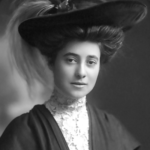
1901
Nineteen-year-old Mary Harriman establishes the first Junior League in New York City, envisioning an organization where women could volunteer their time, develop their skills and improve the lives of those in their communities.
TODAY Junior Leagues in 291 communities throughout Canada, Mexico, the United Kingdom and the United States continue to provide opportunities for women who are committed to honing their leadership skills by tackling the issues that confront their region.

1942
Due to gas rationing during World War II, the Junior League of San Francisco forms area auxiliary units in suburban regions, including Palo Alto.
In 1953, the Palo Alto Unit is active in helping to establish the Children’s Health Council.
In 1964, the bulletin for the Palo Alto Unit is published as the Palo Alto Piper. Piper is still in publication today.
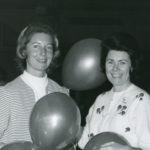
1965
The Junior League of Palo Alto, Inc. becomes the 208th League in the international association of Junior Leagues formed in 1921.
In October, the League’s first fundraiser, the “Rip-Roaring Rummage Sale” nets more than $20,000.
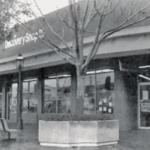
1970
1970: The historic Latham-Hopkins Gatehouse in Menlo Park becomes the official JLPA headquarters.
Building on the success of the annual Rummage Sale, the League’s signature fundraiser, The Discovery Shop (later renamed The Shop) opens its doors in Redwood City.
1973: Environmental Volunteers begins as a League project. Now as an independent nonprofit organization, it serves more than 260,000 children, with an active volunteer base of 130 docents, inspiring a love of science and nature.
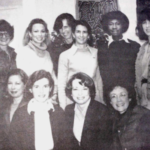
1978
A task force of JLPA members led by Carol Schwartz sets out to create a dynamic learning center devoted to science and technology, originally inspired by the Chicago Museum of Science and Industry. Over the next 11 years, the League provides nearly $175,000 in seed money and extensive volunteer support to the museum’s Board of Directors.
As the museum launches, members from the JLPA and the Junior League of San Jose collaborate to develop the museum’s comprehensive volunteer recruitment and training program.
TODAY, The Tech Museum of Innovation is one of Silicon Valley’s must-see attractions and welcomes 500,000 visitors each year, engaging people of all ages and backgrounds in exploring and experiencing technologies affecting their lives, and serving as an inspiration to future innovators.

1981
The first JLPA cookbook, A Private Collection, is published as a fundraiser. It wins the R.T. French Tastemaker Award for Outstanding Cookbook.
1984: Building on the success of its first cookbook, A Private Collection II is published.
1986: The Latham-Hopkins Gatehouse is placed on the National Register of Historic Places as a landmark building.
1988-90: The JLPA is one of the first chapters in the Association to eliminate sponsorship and age requirements, opening membership to any woman who is committed to developing the community through effective action and volunteer leadership.
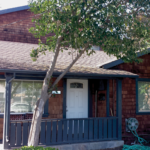
1990
The League collaborates with Youth and Family Assistance to develop the Daybreak Shelter Program for Homeless Youth, the first suburban homeless youth shelter in the nation. Daybreak provides transitional housing and independent living skills training for homeless individuals aged 16-21. It remains the only program of its kind in San Mateo County.
League members Kristine Erving and Linda Romley-Irvine create and serve as co-directors of the Stanford Health Library, whose mission is to provide scientifically based medical information and health education to help individuals and families make informed decisions about their health and health care.
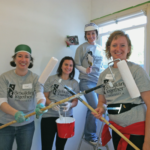
1992
The City of Menlo Park awards the JLPA the Golden Acorn Award for its efforts in bringing Christmas in April, renamed Rebuilding Together Peninsula, to the Mid-Peninsula. Now an independent nonprofit organization, Rebuilding Together Peninsula serves approximately 250 homeowners each year enlisting the help of over 3,000 volunteers to repair homes, revitalize communities and rebuild lives.
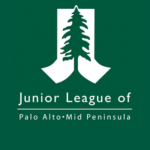
1993
The Junior League of Palo Alto, Inc. formally changes its name to the Junior League of Palo Alto•Mid Peninsula, Inc. to better define its membership demographics and communities served.
1994: The JLPA•MP adopts its first focus area: The Health and Education of Children and Youth.
The JLPA•MP becomes one of the first Leagues to form an Endowment Fund, seeded with $80,000 from the League’s General Fund. The Endowment Fund wins acclaim as AJLI’s Outstanding Fundraising Program and becomes a template that many other Leagues will follow.
The Spirit of Giving Holiday Boutique fundraiser kicks off.

1995
The Shop moves from Redwood City to its current downtown Menlo Park location.
1995: The League creates its first annual gala fundraiser, the Fashion Show, partnering with Saks Fifth Avenue. League members, their children and husbands serve as models.
1996-1997: The Gatehouse undergoes extensive renovation, becoming better able to accommodate the growing number of committees and meetings.
1999: The Rosalie Rendu Center becomes a League project. TODAY the Center continues its mission of breaking the cycle of poverty by providing English lessons and supporting preschool education for families. SPAC successfully sponsors Senate Bill 563, a landmark piece of legislation that eliminates a dangerous loophole and toughens domestic violence penalties.
2000: The League changes its focus area to: Developing the Potential of Families.
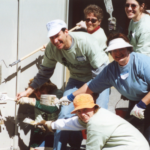
2002
In celebration of the Junior League Centennial, the JLPA•MP distributes $100,000 in special community grants, called “Centennial Gifts to the Community” and organizes several Centennial projects.
2008: The League hosts its first Finishing Touches: A Holiday Tour of Fine Homes & Boutique fundraiser.
2009: MPower project (2009-2012) offers life skills lessons for foster youth.
2014: The League shifts to a more focused, issue-based community impact model, adopting a new focus area: Empowering Girls to be STEAM Leaders of Tomorrow.
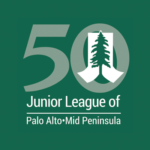
2015
In celebration of its 50th anniversary, the League provides a $150,000 grant to our long-time partner The Tech Museum of Innovation to establish Girls Days @ The Tech, a new program focused on engaging girls with STEAM education.
2016: The League hosts it’s first FLASHDASH Photo Scavenger Hunt fundraiser.